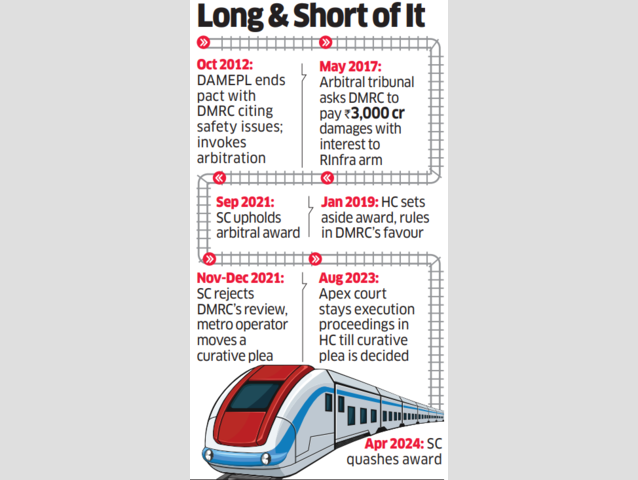The court noted that a public utility that was facing an enormous liability had suffered a “severe miscarriage of justice” as a result of its prior ruling. Declaring that the award had “suffered from the vice of perversity and patent illegality,” the court has mandated that the petitioner (DMRC) repay any money that it may have previously paid as a result of coercive action.
It is commendable that the highest court has acknowledged that it erred in interfering with the Delhi High Court Division Bench’s 2019 decision. There have been many ups and downs in this case.

Source: The Economic Times
In 2018, a single-judge bench of the HC maintained the arbitral verdict; however, the Division Bench overturned it. Then, in defiance of the Division Bench’s ruling, the Anil Ambani-owned Reliance Infrastructure petitioned the Supreme Court. The award was reinstated by a two-judge bench of the highest court. The DMRC was compelled to file a curative appeal when its motion for a review of the 2021 verdict was denied.
A contract was signed in 2008 between the DAMEPL and the DMRC to operate the airport Metro line until 2038. But the private company ceased running the Metro on the airport line, probably because of safety concerns; it claimed breach of contract, cited an arbitration clause, and demanded the termination fee.
Source: CNBC- TV 18
The DAMEPL’s “illegal” move to end the concessionaire agreement was primarily felt by the DMRC. The supreme court has finally made amends for a grave injustice and shown that it is capable of self-correction. This bodes well for the administration of justice in India. All levels of the judiciary ought to use this ruling as a model, particularly in business disputes where corporations bully public utilities.
What do you think about this? Comment below.

